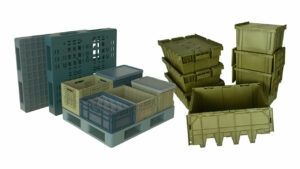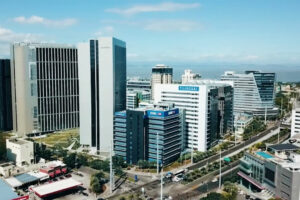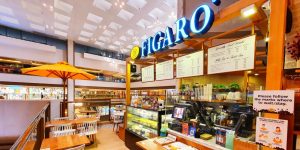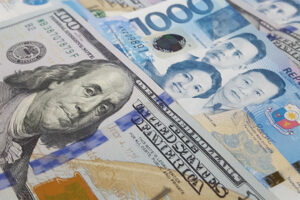Sentinel Upcycling says incentives driving local sustainability efforts

SENTINEL Upcycling Technologies, a manufacturer of upcycled plastic products, is driving community participation in sustainability efforts by incentivizing local groups to contribute to a circular economy.
“(There is a) need to provide a different point of view, a different approach to solving the plastic pollution problem,” Jonathan F. Co, project head of Sentinel Upcycling Technologies, said in an interview with BusinessWorld.
According to Mr. Co, the upcycling company aims to “establish, empower, and enable” community-based groups like homeowners’ associations, non-governmental organizations, and local cooperatives to work within their respective areas and collate materials that can be upcycled.
“It cannot be centralized US-style where people kind of sort it and then it goes to a big sorting center. That’s very expensive, that’s very tedious,” he said.
“The implementation should be a hyperlocal community-based set of programs.”
Some of the groups the company has worked with include the Philippine Alliance for Sustainable Solutions, Communities Organized for Resource Allocation, Alon and Araw, and Envirotech.
“It depends on who is willing to do the work,” he said. “The work is not complicated, it’s just tedious.”
Mr. Co added that the company took inspiration from traditional junk shops that monetize collected items.
By purchasing these gathered recyclable materials from different groups, Sentinel Upcycling hopes to motivate people to participate in its sustainability efforts.
“When you mobilize the community, of course, you have to incentivize them to accelerate the changing behavior.”
The incentives for these materials range from P30 to P750 per kilo.
The types of materials that can be upcycled by the company are clean plastics from take-out containers, plastic utensils, plastic bottles, plastic labo, clean sachets, clean chip bags, polyethylene terephthalate (PET or #1 plastic), polypropylene (PP or #5 plastic), high-density polyethylene (HDPE or #2 plastic), and acrylonitrile butadiene styrene (ABS).
“In case the people ask ‘Why do we need to collect it? No one will buy it,’ we can raise our hands and buy it from them,” he said.
The company has produced different products such as pallets, crates, tote boxes, dividers, hangers, trays, trash bins, tumblers, and school furniture. These products retail from P150 to P4,500.
Mr. Co added that communities play a vital role in closing the plastic cycle. “We need the communities’ support to purchase the consumer products that we are able to make.”
Mondelez Philippines, Inc. was one of the first customers of Sentinel Upcycling Technologies in 2014.
Seventeen tons or 8,500 sachets of the powdered drink Tang, one of Mondelez Philippines’ products, were converted into 11,000 armchairs donated to various schools in need.
“The circular economy is really demand-driven. The most important aspect is demand,” Mr. Co said. — Almira Louise S. Martinez




